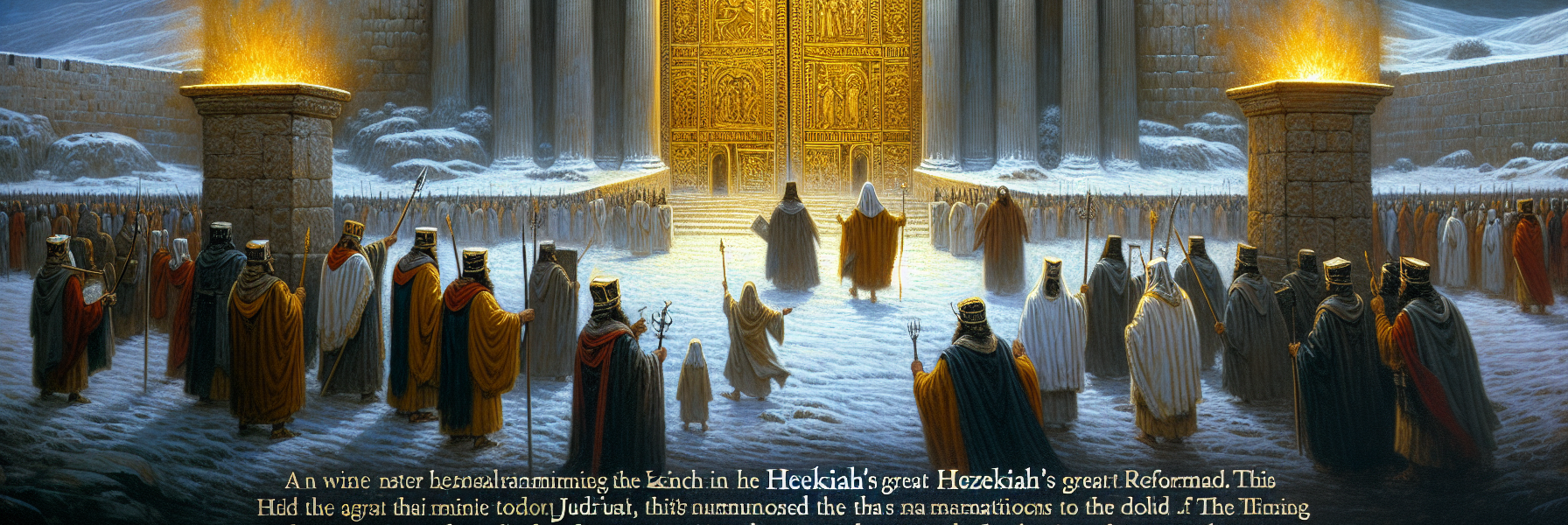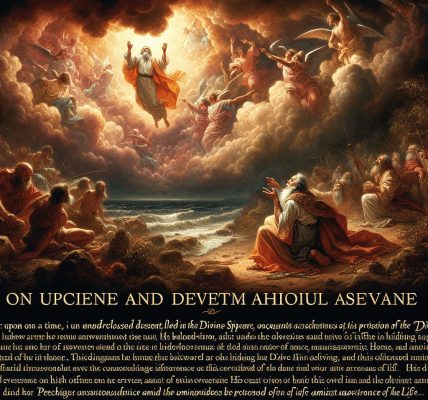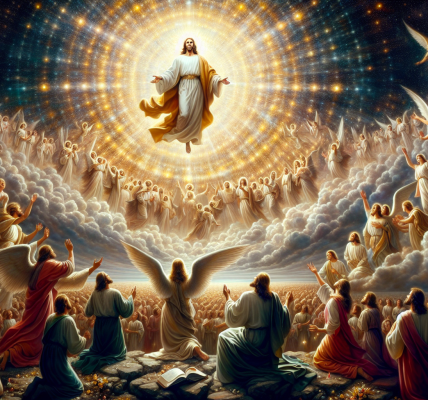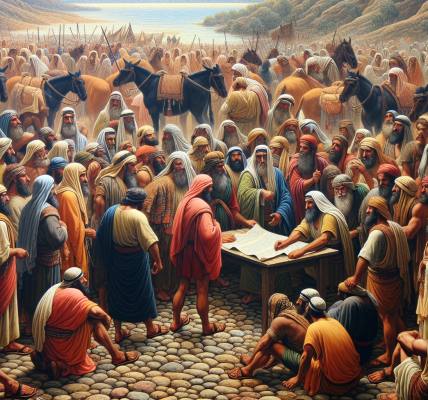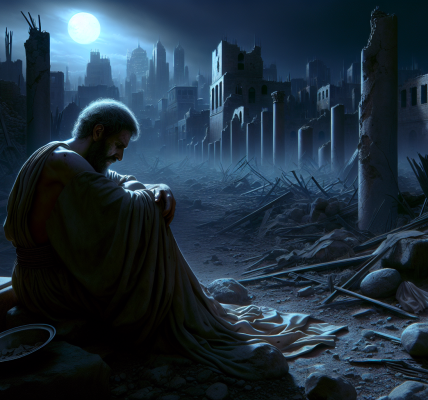**The Cleansing of the Temple: Hezekiah’s Great Reformation**
In the dark days of Judah’s history, when the land groaned under the weight of idolatry and neglect, a young king arose whose heart burned with devotion to the Lord. Hezekiah, son of Ahaz, ascended the throne at the age of twenty-five, and unlike his father, who had closed the doors of the Temple and led the people into wickedness, Hezekiah resolved to restore the worship of the God of Israel.
### **The Call to Repentance**
In the first month of his reign, even as the winter winds still whispered through the hills of Jerusalem, Hezekiah summoned the priests and Levites to the eastern square of the Temple. The great doors, once gleaming with gold but now tarnished by neglect, stood shut—a silent witness to the years of abandonment. The king’s voice, firm and urgent, rang out:
*”Hear me, Levites! Consecrate yourselves now, and consecrate the house of the Lord, the God of your fathers. Remove all the filthiness from the holy place!”*
The priests and Levites bowed their heads, their hearts stirred by the king’s zeal. They remembered the glory of Solomon’s Temple, where the presence of the Lord had once dwelled in power. Now, under the reign of Ahaz, the courts had been littered with pagan altars, the sacred vessels defiled, and the lampstands left unlit. But Hezekiah’s command was clear: the Temple must be cleansed.
### **The Great Purification**
With solemn determination, the Levites arose—men from the clans of Kohath, Merari, and Gershon. They took up silver basins, filled them with holy water, and donned their linen garments. The High Priest, his hands trembling with reverence, pushed open the heavy doors of the Temple. A musty scent of disuse greeted them, mingled with the lingering stench of burnt offerings made to foreign gods.
The sight within grieved them. Dust covered the golden altar, spiderwebs clung to the veil of the Holy Place, and the bronze laver stood empty. Worst of all, in the inner court stood an idolatrous altar, erected by Ahaz in defiance of the Lord’s command. The Levites set to work immediately. They carried out the defiled objects—broken idols, Asherah poles, and vessels tainted by pagan rites—and cast them into the Kidron Valley, where they were burned to ashes.
For eight days, the Levites scrubbed the floors, polished the lampstands, and purified the altar with sacred fire. They scoured every corner, from the outer courts to the Most Holy Place, ensuring that no trace of uncleanness remained. The sound of chisels echoed as they removed the stones defiled by idolatry, replacing them with new ones consecrated to the Lord.
### **The Restoration of Worship**
On the sixteenth day of the first month, the work was complete. Hezekiah, clad in royal robes, assembled the city’s leaders and ascended the steps of the Temple. The morning sun bathed the courtyard in golden light as the king lifted his hands in prayer.
*”Now it is in my heart to make a covenant with the Lord, the God of Israel, that His fierce anger may turn away from us.”*
The priests brought forward the sacrifices—seven bulls, seven rams, seven lambs, and a male goat for a sin offering. As the blood of the sacrifices was sprinkled upon the altar, the Levites stood in their appointed places, cymbals and harps in hand. They began to sing the psalms of David, their voices rising in harmony with the trumpets, praising the Lord with the words:
*”The Lord is good; His steadfast love endures forever!”*
Then, a miraculous thing happened. As the song swelled, the glory of the Lord filled the Temple once more. The priests could not stand to minister, for the presence of God was overwhelming. The people fell on their faces, weeping with joy and repentance.
### **The People Respond**
Word spread quickly through Jerusalem. Men, women, and children came with their own offerings—rams, lambs, and thank offerings—until the priests were overwhelmed with the abundance. The Levites, though weary, worked diligently to flay the sacrifices, for their hearts were glad. Hezekiah encouraged them, saying, *”The Lord has prepared the people, for the thing was done suddenly.”*
For weeks, the celebration continued. The people ate together in joy, sharing the peace offerings as in the days of old. The sound of rejoicing echoed through the streets of Jerusalem, a stark contrast to the silence that had reigned before.
### **A Nation Renewed**
Hezekiah’s reformation did not end at the Temple gates. He sent messengers throughout Judah and even into the lands of Ephraim and Manasseh, calling the scattered tribes to return to the Lord. Though many mocked, a remnant heeded the call and joined in the Passover celebration—a feast not kept in such grandeur since the days of Solomon.
Thus, under Hezekiah’s leadership, Judah was revived. The Lord heard their prayers, forgave their sins, and once more dwelt among His people. The king’s faithfulness became a beacon of hope, proving that even in the darkest times, repentance and devotion could restore the broken covenant.
And so, the story of Hezekiah’s cleansing of the Temple stands as a testament: *”Those who seek the Lord with all their heart will find Him, and He will heal their land.”*
